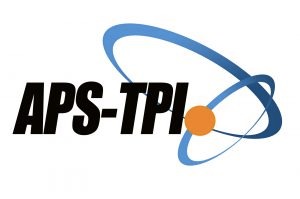IMPLEMENTATION OF PROJECT-BASED LEARNING TO IMPROVE THE LEARNING OUTCOMES OF CYBER BUSINESS LECTURES FOR INFORMATION SYSTEMS STUDENTS OF PIGNATELLI TRIPUTRA UNIVERSITY CLASS
Keywords:
Project based learning, Learning outcomes, Cyber bussiness, Classroom action reseearchAbstract
This research aims to evaluate the effectiveness of implementing the Project Base Learning model in Cyber
Business lectures for the Information Systems students of Pignatelli Triputra University, Class of 2022. The
research method used is an experiment with a Pretest-Posttest Design. The subjects of the study consist of
one class comprising 18 students. The testing process involved implementing conventional lectures from
the beginning of the semester until the midterm and then utilizing the project-based learning method until
the end of the semester. The test results indicate that the data are distributed normally and homogeneous,
and the hypothesis testing using the T-test shows that the use of the project-based learning lecture model
significantly affects learning outcomes compared to conventional lecture models. This study demonstrates
that the project-based learning model effectively enhances learning outcomes for Information Systems
students of Pignatelli Triputra University, Class of 2022, in the Cyber Business course. This lecture or
learning model is an alternative for teachers, educators, and schools to develop more effective, creative,
and innovative learning strategies.
References
Akbaş Tuna, A., & Türkmendağ, Z. (2022). Cyber business management. In Conflict Management in Digital Business: New Strategy and Approach. https://doi.org/10.1108/978-1-80262-773-220221026
As Salafy, Y. W., & Susanah, S. (2022). Perbandingan Literasi Matematika Siswa Kelas VIII SMP dalam Pembelajaran Model Eliciting Activities (MEAs) dan Pembelajaran Konvensional. MATHEdunesa, 11(1). https://doi.org/10.26740/mathedunesa.v11n1.p302-310
Chen, S. Y., Lai, C. F., Lai, Y. H., & Su, Y. S. (2022). Effect of project-based learning on development of students’ creative thinking. International Journal of Electrical Engineering and Education, 59(3). https://doi.org/10.1177/0020720919846808
Daniar Pramita, R. W., Rizal, N., & Sulistyan, R. B. (2021). Metode Penelitian Kuantitatif. In Widya Gama Press.
Endang, W. W. (2018). Teori dan Praktik Penelitian Kuantitatif, Kualitatif, Penelitian Tindakan Kelas (PTK), Research and Development (R&D). In Bumi Aksara.
Evans, M. A. (2022). ENTERPRISE CYBERSECURITY IN DIGITAL BUSINESS: Building a Cyber Resilient Organization. In Enterprise Cybersecurity in Digital Business: Building a Cyber Resilient Organization. https://doi.org/10.4324/9781003052616
Fadli, M. R. (2021). Memahami desain metode penelitian kualitatif. HUMANIKA, 21(1). https://doi.org/10.21831/hum.v21i1.38075
Febrianto, A. R., & Susanto, A. I. F. (2023). EFL Students’ Reflections on their Language Learning Shifts: Before, During, and After COVID-19. Journal of Asia TEFL, 20(1). https://doi.org/10.18823/asiatefl.2023.20.1.7.106
Handoyono, N. A., & Rabiman, R. (2016). PENINGKATAN MOTIVASI BELAJAR DAN HASIL BELAJAR LAS LANJUT DENGAN MENERAPKAN METODE PROJECT- BASED LEARNING. TAMAN VOKASI, 5(2). https://doi.org/10.30738/jtvok.v5i2.2476
Indriyani, S., & Handayani, N. S. (2018). STRES AKADEMIK DAN MOTIVASI BERPRESTASI PADA MAHASISWA YANG BEKERJA SAMBIL KULIAH. Jurnal Psikologi, 11(2). https://doi.org/10.35760/psi.2018.v11i2.2260
Maros, M., Korenkova, M., Fila, M., Levicky, M., & Schoberova, M. (2023). Project-based learning and its effectiveness: evidence from Slovakia. Interactive Learning Environments, 31(7). https://doi.org/10.1080/10494820.2021.1954036
Mkansi, M. (2022). E-business adoption costs and strategies for retail micro businesses. Electronic Commerce Research, 22(4). https://doi.org/10.1007/s10660-020-09448-7
Mumpuniarti, M. (2021). Persepsi dan pengembangan peta kognitif mahasiswa dalam blended learning. Jurnal Inovasi Teknologi Pendidikan, 8(2). https://doi.org/10.21831/jitp.v8i2.25787
Muruwae, A. (2022). Telaah Hasil Belajar: Strategi Pembelajaran dan Gaya Kognitif. In CV literasi Nusantara Abadi.
Rondonuwu, Y. V., Hidayatullah, S., & Sisharini, N. (2022). The Effect of the Employee Information System Implementation on User Satisfaction Mediated by Internet Facilities at PT Kemajuan Industrindo Malang. International Journal of Innovative Science and Research Technology, 7(8).
Ummah, S. K., Inam, A., & Azmi, R. D. (2019). Creating manipulatives: Improving students’ creativity through project-based learning. Journal on Mathematics Education, 10(1). https://doi.org/10.22342/jme.10.1.5093.93-102
Veronica, A., Ernawati, Rasdiana, Abas, M., Yusriani, Hadawiah, Hidayah, N., Sabtohadi, J., Marlina, H., Mulyani, W., & Zulkarnaini. (2022). Metodologi Penelitian Kuantitatif. In Pt. Global Eksekutif Teknologi.
Wang, S. (2022). Critical Thinking Development Through Project-Based Learning. Journal of Language Teaching and Research, 13(5). https://doi.org/10.17507/jltr.1305.13
Wariani, T., & Hayon, V. H. B. (2023). Kajian Tentang Keaktifan, Hasil Belajar, dan Produk yang Dihasilkan Mahasiswa Pada Perkuliahan yang Menerapkan Pembelajaran Berbasis Proyek. Indonesian Journal of Educational Science (IJES), 5(2). https://doi.org/10.31605/ijes.v5i2.2371
Yang, D., Snelson, C., & Feng, S. (2023). Identifying computational thinking in students through project-based problem-solving activities. Information Discovery and Delivery, 51(3). https://doi.org/10.1108/IDD-09-2022-0091.
Downloads
Published
How to Cite
Issue
Section
 Abstract views: 194
,
Abstract views: 194
, PDF Downloads: 134
PDF Downloads: 134






